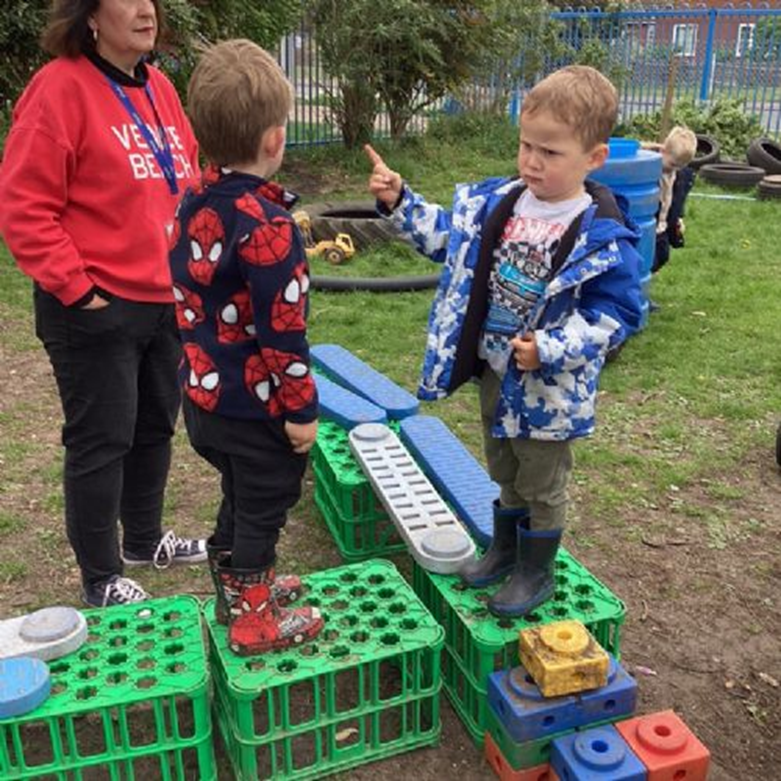Charter for children play
Children have the right to play – Free to choose what they do – lively or relaxed, noisy or quiet – with the chance to stretch and challenge themselves, take risks and enjoy freedom.
Every child needs time and space to play – inclusive – whatever their age, culture, ethnicity or social and economic background, need time and space to play freely and confidently with their peers, free of charge, indoors and outdoors, somewhere they feel safe.
Adults should let people play – Parents, carers and other adults can support children’s and young people’s play by respecting the value and importance of ALL play types, playing with their children and by creating opportunities and allowing time for children to play independently with their friends, inside and outside the home.
Children should be able to play freely in their local areas – Children have the same right to use and enjoy public spaces. Local streets, green spaces, parks and town centres should be accessible for children and young people to move around in safety and offer places where they can play freely, experience nature, explore their environment and be with their friends.
Children value and benefit from staffed play provision – Children should have access to a choice of staffed facilities where children’s play rights and needs are the first priority, such as adventure playgrounds, play centres, holiday play schemes, after-school play clubs, breakfast play clubs, playgrounds, toy libraries, play buses, and play ranger services.
Children's play is enriched by skilled playworkers – Qualified, skilled playworkers are trained to put children’s play needs at the centre of their work in a variety of settings, enhancing the range and quality of play experiences for all children. They are the best people to run staffed play provision for school-aged children. The role of the playworker is as important as that of any skilled professional working with children and should be respected and rewarding accordingly.
Children need time and space to play at school – Children need time to relax and play freely with their friends. Young children learn best through play and, as they get older, play supports and enriches their learning. Children learn best if teaching is creative and enjoyable. In school, time and space for play and outdoor learning is as important as formal teaching. School grounds should be good places to play.
Children sometimes need extra support to enjoy their right to play - Children and young people living away from home or visiting unfamiliar or controlled environments such as hospitals, prisons, immigration centres and residential homes and schools, sometimes experience fear, anxiety and discomfort. For these children, it is especially important to ensure they have good play opportunities facilitated by trained staff and volunteers.
Children are defined as anyone under the age of 18 reference the United Nations Convention on the Rights of the Child.
- Play England, Making space for play

